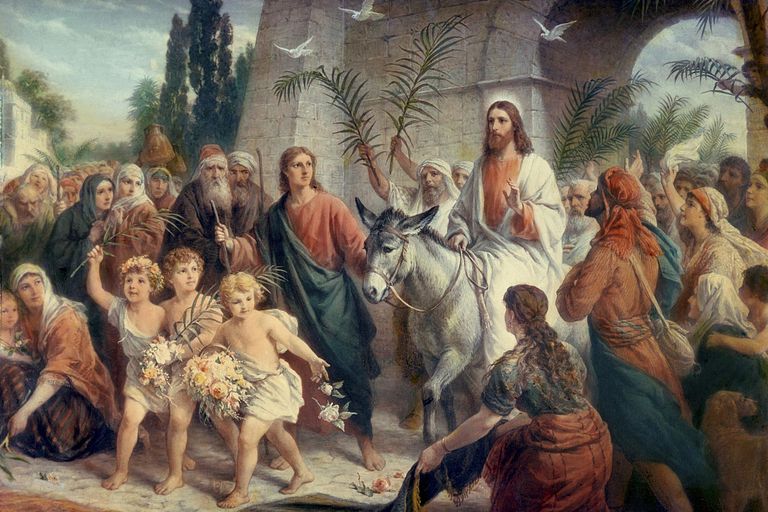PALM SUNDAY (C)
Palm Sunday, 14th April 2019
Is. 50:4-7; Ps. 22(21):8-9,17-18,19-20,23-24; Phil. 2:6-11; Lk. 22:14-23:56 (Ps Wk II)
Why did Jesus not resist? He certainly had the power to escape his suffering, and in the Garden of Gethsemane scene it was clear that he did not want to die. But he wanted to follow the will of God more than anything else. That was the motive for the suffering servant in Isaiah, and it was at work in the Passion story. Not only that, but to react in a typically human way would have been playing according to the world’s rules and Jesus witnessed only to those from heaven. He responded with patience, courage, and love — as well as complete trust in God the Father. He was willing to give himself away for the sake of humanity, and it is this extreme self-giving love that was the source of his exaltation and glorification. His mission was not to die, but to witness to justice, compassion, forgiveness, and love, and to challenge the way humans think and act. Doing this put him on a collision course with the world, and his death was inevitable. But his death was a consequence of his mission, not the mission itself. Violence and suffering alone are not good — only how we respond to it can make it something positive.
In Luke’s version of the Passion, Jesus witnessed to these principles in a perfect manner. He forgave his executioners from the cross as well as the repentant thief at his side. Even the Roman centurion proclaimed his innocence and righteousness.
Lord, help me to follow the example of Jesus in his suffering.

